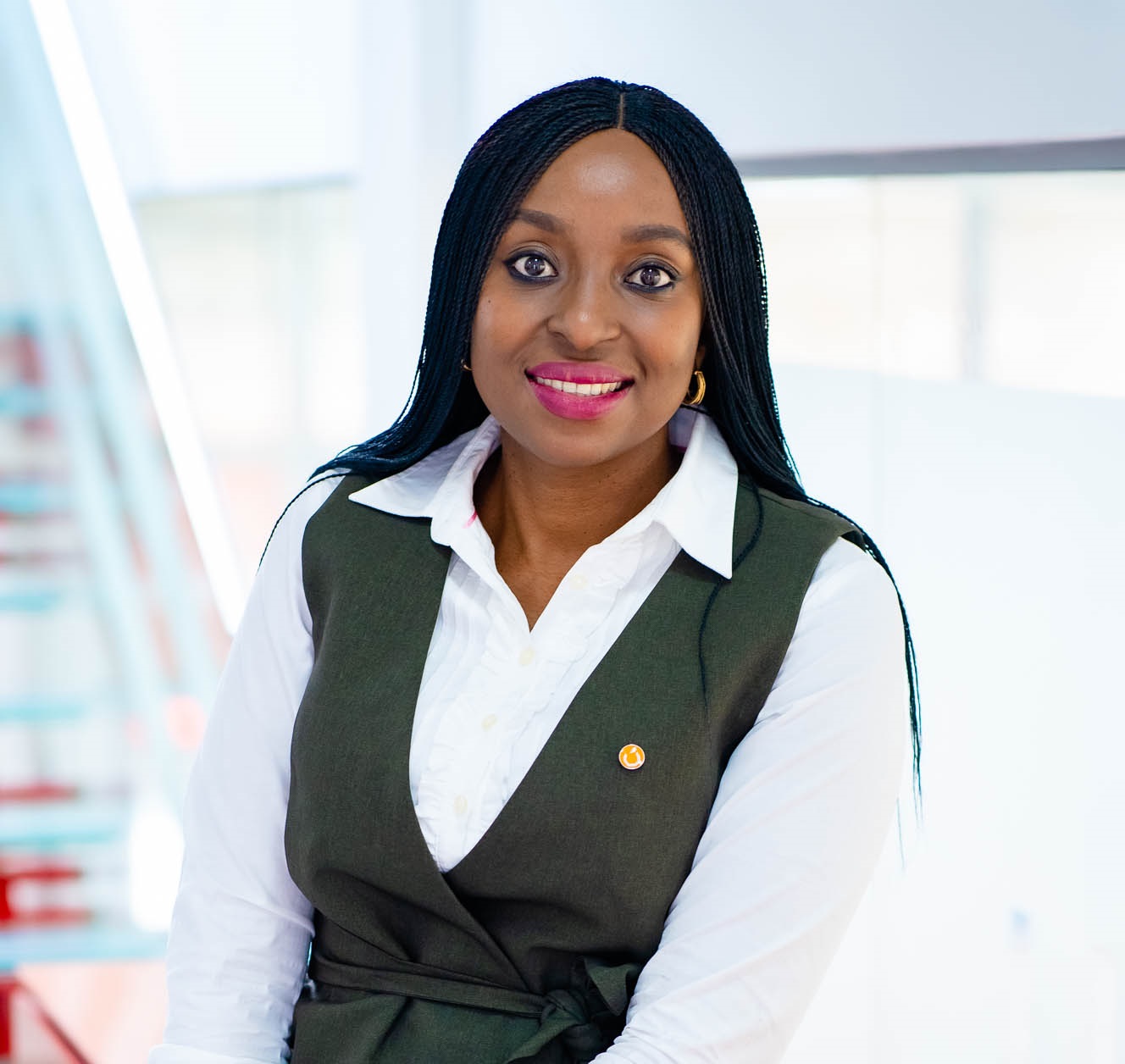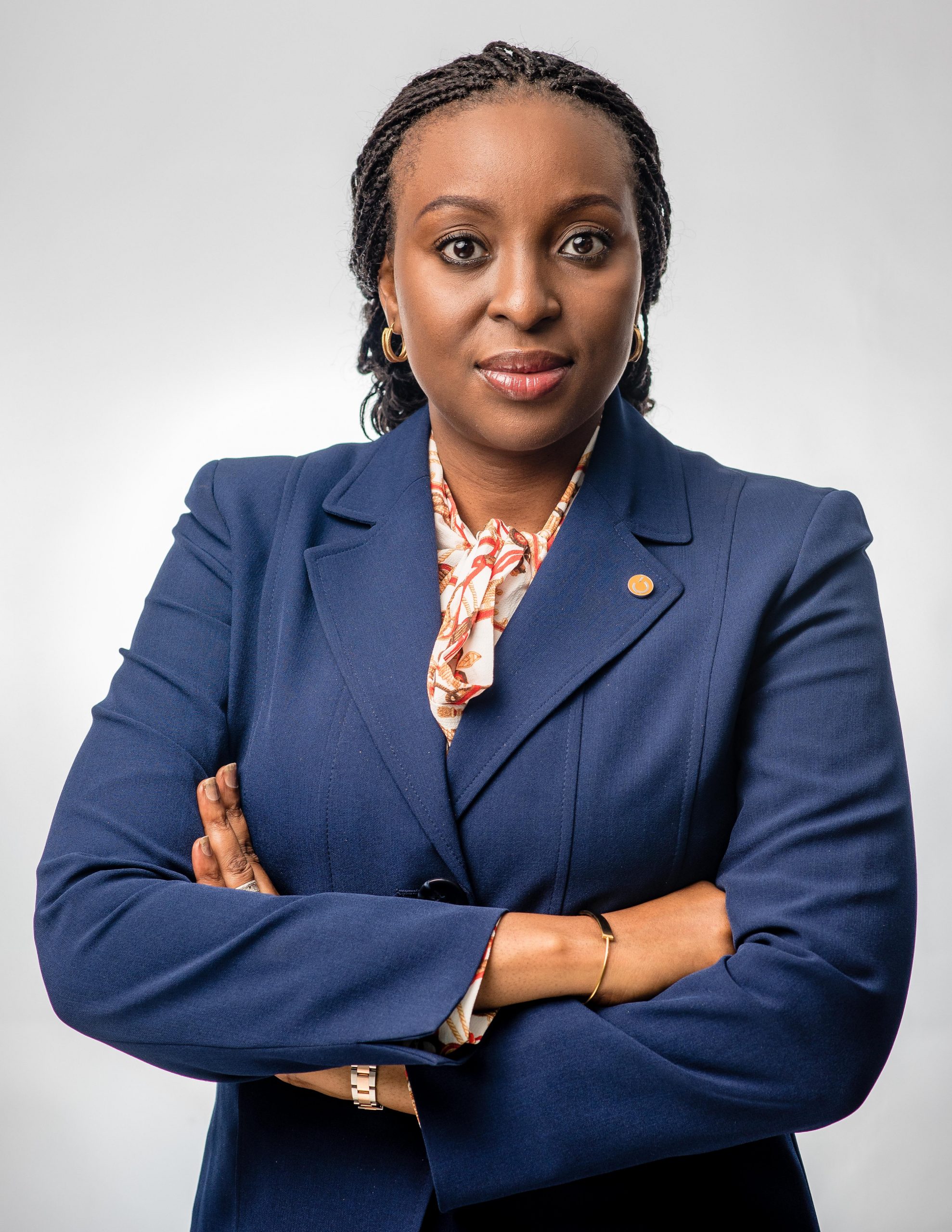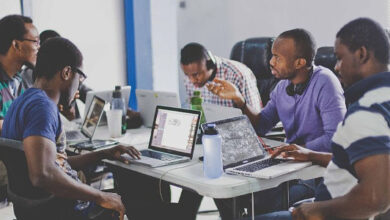The Lunch Hour – Owen Omogiafo, CEO, Transcorp Group Plc


Mrs. Owen Omogiafo is the President/ Chief Executive Officer of Transnational Cooperation of Nigeria Plc (Transcorp), a diversified conglomerate with strategic investments in power, hospitality, and oil and gas sectors. She has over two decades of corporate experience in organisational development, human capital management, banking, change management, hospitality, and energy.
Owen joined Transcorp in July 2018 as Executive Director, Corporate Services, where she drove operational efficiency across the Transcorp Group. She was subsequently appointed Managing Director/CEO of Transcorp Hotels Plc to drive the Company’s strategic objectives at its properties- Transcorp Hilton Abuja and Transcorp Hotels Calabar. In March 2020, she was appointed as the President/ Chief Executive Officer of Transcorp and is the first woman to occupy that role in the organisation’s history.
Before joining Transcorp, Owen was the Chief Operating Officer at the Tony Elumelu Foundation, where she oversaw the $100m Programme aimed at identifying, mentoring, and funding 10,000 entrepreneurs over 10years. She also worked as the Director of Resources at Heirs Holdings Limited, a family-owned investment company chaired by Tony O. Elumelu, CON. Her experience equally includes working at the United Bank for Africa Plc as HR Advisor to the GMD/CEO, and at Accenture as an Organisation and Human Performance Consultant, specializing in Change Management.
Owen is a member of the Board of Trustees of the Association of Power Generation Companies (APGC) in Nigeria and a Director on the Board of Avon Healthcare Limited, where she sits on the Board Finance, Investment & Risk Committee, and Board Audit & Governance, in a Non-Executive capacity.
She holds a B.Sc. in Sociology & Anthropology from the University of Benin, an M.Sc. in Human Resource Management from the London School of Economics and Political Science, and an alumnus of the Lagos Business School and IESE Business School, Spain. She is also a member of the Chartered Institute of Personnel and Development, UK, a certified Change Manager with the Prosci Institute, USA, a member of the Institute of Directors (IoD) Nigeria.
Owen was in 2019 recognised as one of the Top 100 Female CEOs in Africa by Reset Global People, and as one of Nigeria’s Leading Ladies in Corporate Nigeria by Leading Ladies Africa. In 2018, she was recognised by The Guardian newspaper as one of Nigeria’s 100 most inspirational women and has also been named in the YNaija! Power List for Corporate Nigeria.
“A roadmap for the power sector was designed when the sector was privatized over a decade ago. We just need the government to help enforce these reforms and move quickly to make the sector self-sustaining”.
Please talk about what motivated you to select your professional discipline and career progression.
I fell into it and I still believe that the Joint Admissions and Matriculation Board (JAMB) made an error because I was admitted to study sociology and anthropology at the University of Benin even though I applied to study economics. Let me summarise the story for you.
In secondary school, I excelled in science subjects and my father wanted me to study either medicine or to be a pilot. Initially, I was happy to pursue a career in medicine, but I later realised that I did not have the stomach for blood. Engineering could have been an option, but I did not think it was for me. I felt I needed to do something more related to meeting people and I did not think engineering was a good fit.
One day, a neighbour suggested that I consider economics as it is broad discipline after which I could choose to specialize in whatever area of interest I decide on. To cut the story short, I eventually applied to study economics at the University of Benin. When the results were released, I discovered that my name was listed among those admitted to study Sociology and Anthropology. This was a huge surprise because I did not apply to study the course. The reason I think that someone made a mistake is that my cousin (with the same surname), who applied to study the course was admitted to study Economics even though she did not apply to study that course.
What was the biggest lesson from your experience at University?
Knowing who you are, what you stand for, and resisting distractions that may come your way. I learned that the university offers a lot of freedom and the onus is on the student to manage that freedom. I socialised a lot in school, but I ensured I did well academically as was my primary focus. So, learning how to manage freedom was a big lesson.
I also learned how to pace myself while pursuing my goals and not take things for granted. As a young student, I sometimes battled through asthma attacks. Whenever that happened, I was not able to study much. So, you could say that I learned to study in advance so that my academics would not be derailed by such attacks because sometimes I would spend days in the hospital before exams.
I also learned to coach people in the university. I facilitated tutorials for some math-based courses so you could say I learned how to teach in school. It is a skill that serves me well up to this day.


Early experience in the workplace?
I learned very early to give your best at whatever you do. As an intern, I worked for a stockbroking company. However, within 2 weeks, the business owner was so impressed with my performance that he offered me a full-time job. I also learned early how to take opportunities when they come to you – making the most of opportunities is a key to success.
How has your journey been through a culture that forces most women to work extra hard because the culture is one that discriminates against women?
In this regard, I often say that I think I have had an unfair advantage over most women. This is because growing up as the only girl in a house full of boys built a competitive spirit in me. Honestly, I did not realise that gender discrimination was so pervasive in the world today because I was trained to compete regardless of gender. My dad made me think that I could excel no matter what. All that impacted my mentality.
Also Read: The Lunch Hour – Olu Akpata, Partner, Templars Law Firm
However, there are other challenges. Some people think that women get ahead based on the way they look or their age, and not their ability. Over the years, I have had to prove that I earned the right to assume certain responsibilities. Women need to recognize that gender biases exist, and it could take time to change them. You have to come to the office with a plan to prove yourself.
If you had the opportunity to go back in time and speak to a young Owen Omogiafo straight out of Uniben, what would be the top advice that you will give yourself knowing how your career has played out?
I will tell myself that tact and diplomacy are often a virtue. Things are not always black and white. Do not invest too much emotion into your views.
Things that you have learned in your career that are not taught in the classroom.
One thing that I learned from my mentor Mr. Tony Elumelu CON is what he calls the “genius of and”; pushing against the tendency to choose “either…..or” in a situation. This means you must realise that collaboration is the most effective way to make progress.
The second thing that I have learned is the power of resilience. You find resources to fix problems and you do not give up. The third thing I have learned is the diversity of people and the value that diversity brings.
The biggest takeaway from home?
That integrity is a virtue. Your word is your bond.
What type of music do you like?
Anyone that makes me happy. I love dancing.


Your interest in books and what are you reading now?
I enjoy Malcolm Gladwell. I am currently reading ‘In Pursuit’- Journeys in African Entrepreneurship by Chukuka Chukuma & Osarentin Guobadia
Your view on philanthropy in a country like Nigeria?
It is not optional to ignore the man on the street. There is such a huge gap between the haves and have nots. We need to keep doing our best to give to the society we live in. It is truly the best way to protect the wealth that you think you have. The government has a role to play and we should not rest until we can deliver quality education and healthcare to all.
What do you think is holding Nigeria back the most?
I think if more people can embrace the philosophy of the “Genius of And” that I mentioned earlier, we will make more progress. Regardless of political affiliation, religion, or ethnicity, we must realise that there is an “and” situation in the society you live in. Come to the table with a mentality to collaborate. That is truly the only sustainable way to make progress.
Things you value the most in a candidate when hiring?
First, I look for passion. Second, I look for a person’s sense of purpose. Third, I probe the person’s attitude. I think your attitude reflects your philosophy and that ultimately impacts your conduct.
As the CEO of a leading Nigerian conglomerate, what’s your message to entrepreneurs of small businesses about the potential to grow their firms into a large one like Transcorp?
I will say, the young shall grow. Nigeria is full of challenges but indeed many of these challenges present opportunities. The success of entrepreneurs like Tony Elumelu reflects what is possible. We have other success stories like that of Cosmos Maduka, founder of Coscharis, Tara Durotoye, owner of House of Tara, to mention a few. My message to young entrepreneurs is to keep at it.
Also Read: The Lunch Hour – Hamda Ambah, CEO, FSDH Merchant Bank
What’s your favourite place to go in Nigeria and abroad and why?
In Nigeria, I will say it is my Abuja. It is a lovely place to be with some great sights and I love staying in the Transcorp Hilton Hotel. Abroad, I went to Tokyo last year and loved it.
Favorite Nigerian brand?
Clearly, I will say the Transcorp brand, due to its purpose of improving lives and transforming Nigeria. However, I should also say that I tremendously admire the United Bank for Africa (UBA) Plc brand for the strides it has achieved. It is a brand that has stood the test of time and cuts across geographies, from originating in Nigeria and having presence in 20 African countries, England and the United States. It portrays Nigeria to Africa and the world very positively.
Any interest in sports?
I enjoy table tennis when I get the chance to play it.
Best use of money ever for you.
Being able to help people from orphans, single mothers, widows, etc.


Who will you like to spend a holiday with?
A getaway with my best girl friends would be fun.
What will be your biggest advice to President Buhari if you ran into him at the Transcorp Hilton Hotel?
Fix the power sector. This more than anything else, because if this is solved it will have a cascading effect on other sectors.
What will be your biggest ask for the sector (the power sector)?
A roadmap for the power sector was designed when the sector was privatized over a decade ago. We just need the government to help enforce these reforms and move quickly to make the sector self-sustaining.
The Lunch Hour was over a zoom meeting because of the restrictions in public gathering due to the Covid-19 outbreak in Nigeria.






